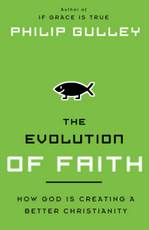You probably shouldn’t even read this post unless you have a poetic soul.
…but if you do, you might have these strange melancholy moods, where you read sad poetry for days, and don’t eat. When I’m in this mood, I read my main man Algernon Charles Swinburne, Victorian poet. I discovered Charles when I read his poem The Garden of Proserpine. You’ll probably recognize it–especially the last two stanzas which hauntingly embrace the inevitability of death.
From too much love of living,
From hope and fear set free,
We thank with brief thanksgiving
Whatever gods may be
That no life lives for ever;
That dead men rise up never;
That even the weariest river
Winds somewhere safe to sea.Then star nor sun shall waken,
Nor any change of light:
Nor sound of waters shaken,
Nor any sound or sight:
Nor wintry leaves nor vernal,
Nor days nor things diurnal;
Only the sleep eternal
In an eternal night.
Charles’ poems remind me of something I say to my dearest family members on occasion. I have told them, “You don’t love me.” Always, they become angry when I say this and take it as an accusation from which they must defend themselves. Really, I should provide them with a translation. “You don’t love me”– Translation: “I am feeling lonely and insecure and I would like to hear you tell me how you love me.”
Has anyone ever said these words to you: “You don’t love me?” Do you realize that they are really trying to say “Please hold my hand and look into my eyes, and say something to fill the empty places in my heart and soul and assuage the pain of longing?”
This is how I feel about Swinburne’s poetry. It’s just my personal interpretation but I feel that when he mournfully states that death is the only reality, that love cannot last, he wants someone to prove him wrong–to give him proof of eternity. I discovered, this week, that I’m not the person to go to if you’ve lost your faith in this world or the next. I’ll probably never be able to post a convincing video that It Gets Better. Neither do I know for sure that there is something concrete after death. But I’m (as I imagine Swinburne is) longing to be persuaded. How utterly bereft life would be if love was truly a fleeting emotion, to be laid down and forgotten in eternal slumber. It touches some deep sorrow in my heart and unleashes tears. There is a yearning for someone authoritative to tell me it is not so.
Another poem Swinburne wrote was Hymn to Proserpine. Here again he uses the tragic image of Persephone, goddess of the Underworld, one who was abducted there against her will and whose story is as heartrending as Charles’ own emotions. He writes:
I have lived long enough, having seen one thing, that love hath an end…
Laurel is green for a season, and love is sweet for a day;
But love grows bitter with treason, and laurel outlives not May.
Sleep, shall we sleep after all? for the world is not sweet in the end;
For the old faiths loosen and fall, the new years ruin and rend…But I turn to her still, having seen she shall surely abide in the end;
Goddess and maiden and queen, be near me now and befriend…For the glass of the years is brittle wherein we gaze for a span;
A little soul for a little bears up this corpse which is man.
So long I endure, no longer; and laugh not again, neither weep.
For there is no God found stronger than death; and death is a sleep.
The only answer to this is the promise of the temple where lovers are promised eternal connection. Where love is a binding force which seals souls to each other so strongly that the power of death itself is shattered and overcome.
Were it not so, all creation might well sing:
Love is a barren sea, bitter and deep;
Let us give up, go down; she will not care.Though all the stars made gold of all the air,
And the sea moving saw before it move
One moon-flower making all the foam-flowers fair;
Though all those waves went over us, and drove
Deep down the stifling lips and drowning hair,
She would not care.Let us go hence, go hence; she will not see.
Sing all once more together; surely she,
She too, remembering days and words that were,
Will turn a little toward us, sighing; but we,
We are hence, we are gone, as though we had not been there











